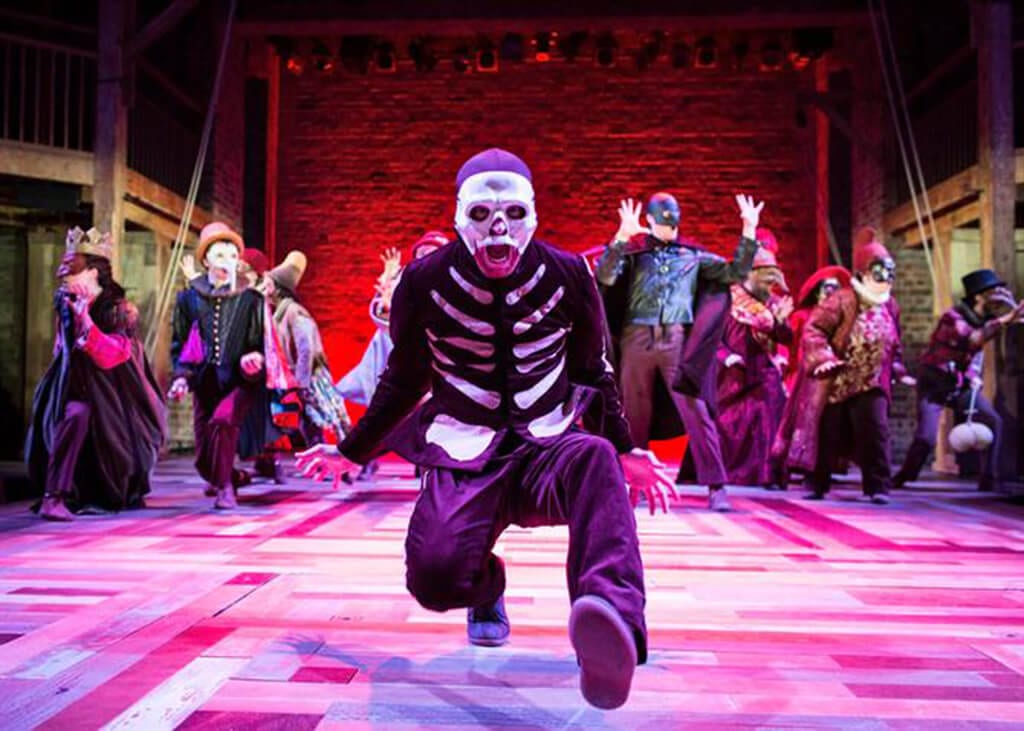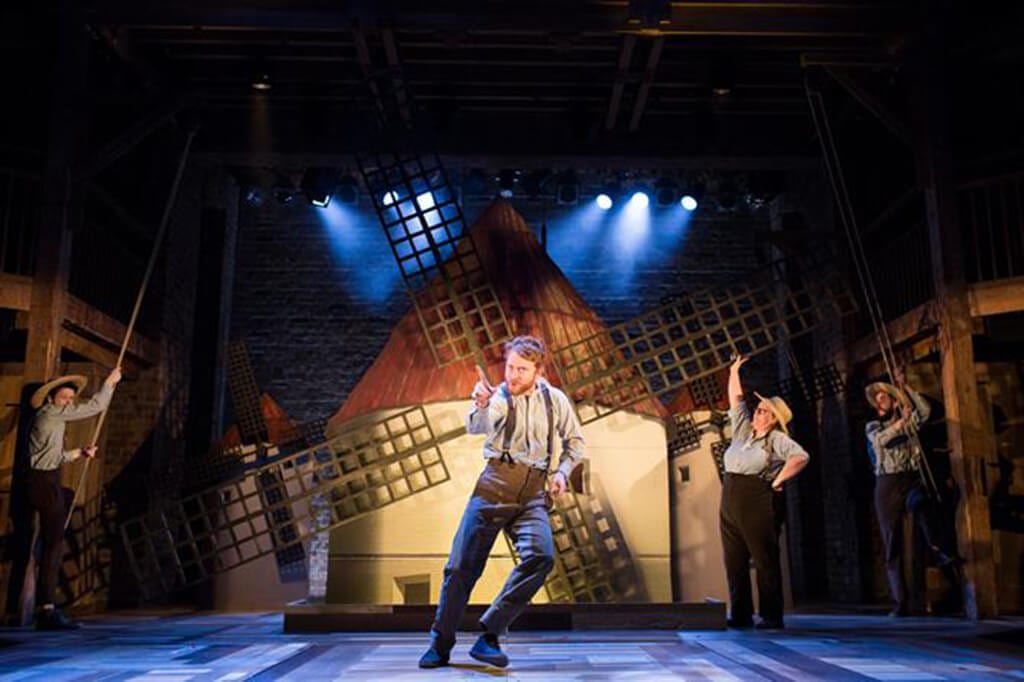Angus Jackson, who directed a brilliant adaptation of the life of J Robert Oppenheimer for the RSC last year, has now done for the same company a theatrically vibrant and inventive staging of an adaptation of one of Europe’s earliest, greatest and most epic novels, Cervantes’ Don Quixote. The remarkably concise and effective adaptation from the sprawling, episodic and picaresque novel is by poet James Fenton, already seasoned at the RSC for his Orphan of Zhao and Tamar’s Revenge. Given that the original novel is both discursive and digressive to an alarming degree, Fenton and Jackson have managed to find a coherent line through the text and give us in stage pictures of exciting memorability a kind of Brechtian, charming and very moving essence of Cervantes’ overarching aims in creating the blissfully crazy yet heroic Don and his earthy sidekick, Sancho Panza. Fenton also follows the two parts of the novel (published roughly ten years apart) by acknowledging in the second part the metafictional aspects of the novel, which constantly played with the fame that had come by that time to Don Quixote and Cervantes. Sending up romanticism and nonsensical chivalry while conveying a poignant striving of the human spirit, David Threlfall, as Don Quixote, rises to the occasion physically and with a myriad of nuances in place. He is an illustration by Gustav Doré come to life. Rufus Hound is a memorable, astonishingly funny, ribald, wise-cracking and ad libbing Sancho Panza, the earthy companion, the foil to the ethereally minded Knight of the Woeful Countenance; he engages the imagination of the audience and is a kind of tour guide for the whole production from the start.
The entire cast is a well-drilled ensemble all of whom appear to be having the time of their lives. They convincingly take multiple parts with energy and conviction and deserve individual praise, every one of them. Using puppetry, choreography and Spanish-tinged music and song by Grant Olding throughout this appealing evening of theatre, eclectically mixing techniques both of the Absurd and of Alienation, eschewing no suitable gimmick or inventive piece of stage craft, this is a fitting tribute to the great Cervantes in the 400th anniversary year of his death. (Yes, as it is Shakespeare’s too!) It also made me want to go back to the book. (My recommendation for an extremely accessible English translation is the one by Edith Grossman.)
Threlfall first rose to early prominence playing an unforgettable Smike in the famous RSC production of Nicholas Nickleby. He has now returned to the company to create a characterization that should become equally legendary. Rufus Hound proves to be adept as an actor. He is watchable throughout, often hilarious, always engaging and is especially moving when it comes to attending the death bed of Don Quixote. Great use is also made of Hound’s stand-up abilities. He ad libs as necessary and moves seamlessly in and out of the play and into a kind of compère mode as required. He is also very responsive to whatever is going on in the audience. At the performance I attended a mobile phone began ringing just as we entered the final, emotional moments of the tale. It rang and rang and no one seemed able to figure out where it was or how to turn it off. Hound and Gemma Goggin, playing Teresa Panza, turned their anger into hilarious, spontaneous jokes and repartee, then, when the phone was finally silenced, along with the rest of the company returned to the mood that had been interrupted and brought the entire audience back into that moment as well.
The play is in repertory in Stratford until 21 May 2016. I certainly hope that it then transfers to London so that more people can see it.




